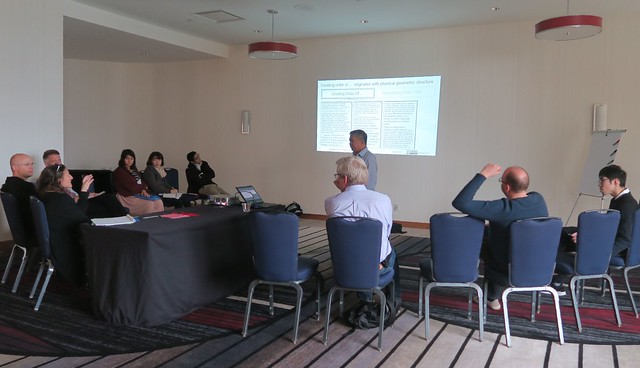In what ways might the generation of wholeness through pattern language be strengthened, through an appreciation of advances in the systems sciences? A workshop at the 2018 International PUARL Conference was an opportunity to review linkages and discuss some details.
An outline to frame the conversation was written in three parts.
- 1. Communicative Framing
- 1.1 Form and synthesis
- 1.2 Organization as semi-lattice
- 1.3 Systems generating systems
- 1.4 Generative patterns and non-generative patterns in software development
- 1.5 System-A and system-B, as two ways of shaping and building living environments
- 1.6 Holons (from systems ecology)
- 2. Dialectical Sensemaking
- 2.1 Types of systems and models
- 2.2 Autopoiesis and allopoiesis
- 2.3 Economies as agricultural, industrial and services (coproduction)
- 3. Narrative Synthesizing
In full, the abstract read:
… Read more (in a new tab)Does a pattern language generate into (a) whole(s)? This workshop will discuss the meaning of architecting a system, complemented with recent research from the systems sciences.
In 1967, at the formation for Center for Environmental Structure, Pattern Manual specified that (sub)systems are fewer in number (and implicitly larger) than patterns:
The environmental pattern language will contain hundreds of subsystems and tens of thousands of individual patterns. Every conceivable kind of building, every part of every kind of building, and every piece of the larger environment will be specified by one or more subsystems of the environmental pattern language.
In summary: An environmental pattern language is a coordinated body of design solutions capable of generating the complete physical structure of a city.



